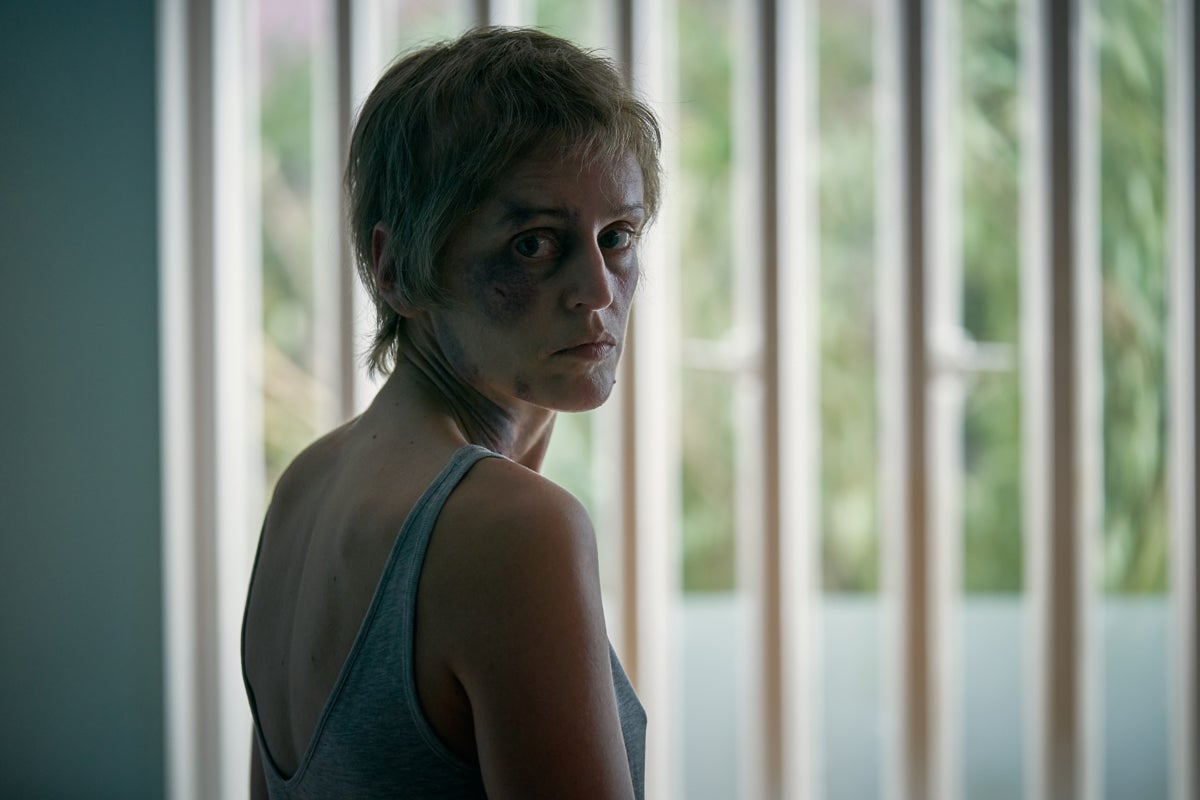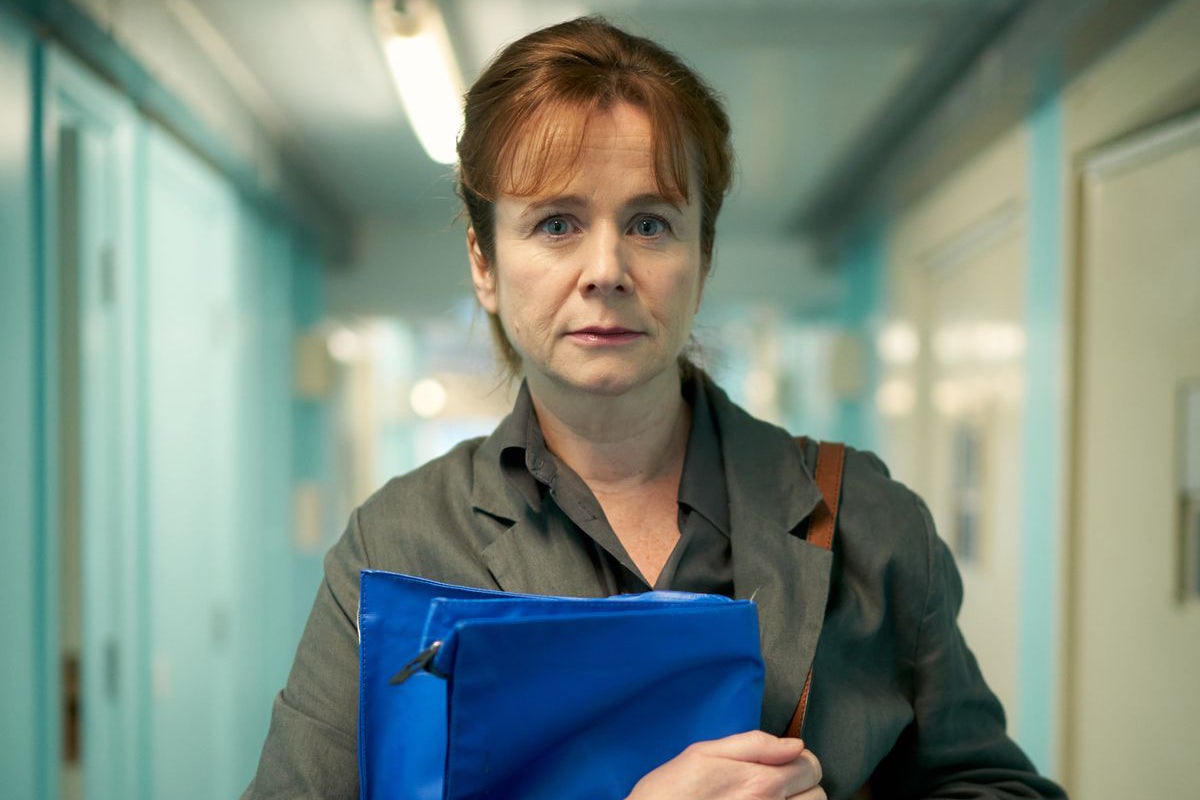Monstrous women are a rarity on TV – Why Too Close did well to avoid the cartoonish feel of Killing Eve and Luther
ITV’s crime series gave us a nuanced and believable portrait of a ‘dangerous’ woman. That makes a change, says Fiona Sturges


Your support helps us to tell the story
From reproductive rights to climate change to Big Tech, The Independent is on the ground when the story is developing. Whether it's investigating the financials of Elon Musk's pro-Trump PAC or producing our latest documentary, 'The A Word', which shines a light on the American women fighting for reproductive rights, we know how important it is to parse out the facts from the messaging.
At such a critical moment in US history, we need reporters on the ground. Your donation allows us to keep sending journalists to speak to both sides of the story.
The Independent is trusted by Americans across the entire political spectrum. And unlike many other quality news outlets, we choose not to lock Americans out of our reporting and analysis with paywalls. We believe quality journalism should be available to everyone, paid for by those who can afford it.
Your support makes all the difference.In Too Close, a patient smothered in welts and bruises sits in a psychiatric unit pondering how life has landed her there. “How does everyone else function?” she asks. “I just don’t understand. Why aren’t the streets full of wrecked people?”
Connie, played by Denise Gough, is suffering from dissociative amnesia, which means she has no recollection of deliberately driving off a bridge with two young children in the back of her car. Or so she claims. Connie now stands accused of attempted murder, and Emily Watson’s forensic psychiatrist, Emma, has been dispatched to assess whether she is being truthful and if she is fit to go on trial. Meanwhile, the tabloid press has fatuously dubbed Connie the “Yummy Mummy Monster”, underlining the supposed disconnect between her ultra-middle-class appearance and her actions, which would seem those of a psychopath.
This powerful three-parter, based on Natalie Daniels’s 2018 book, went out on ITV this week over three consecutive nights, all the better to evoke the intensity and claustrophobia of Emma and Connie’s one-to-ones. Battered, with bloodshot, maniacal eyes and clumps of hair missing, Connie could have stepped off the set of Night of the Living Dead. As she slowly and reluctantly tells Emma her story, there are flashbacks to the pre-crash Connie, barely recognisable in hippy-ish floral prints and fringed shawls, chatting to the playground mums. Meanwhile, the dowdy, watchful Emma – a role Watson has perfected in above-par dramas such as Appropriate Adult and Apple Tree Yard – has her own weak spots on which Connie cruelly pounces, viciously turning the tables on her interrogator in the style of Hannibal Lecter. Their psychological game of cat-and-mouse isn’t an unusual one, though the scenes are artfully choreographed and exceptionally acted.
The series isn’t without its flaws, chief among them Emma’s habit of bringing her entire life in a handbag into a secure unit, including her phone, personal letters and a cigarette lighter which Connie uses to start a bonfire. Similarly baffling is an early scene in which Emma has perfunctory sex with her husband while perched on the kitchen counter without appearing to remove her trousers.
Nonetheless, it’s refreshing to see women placed front and centre in a drama that doesn’t require them to be sexy, heroic or, worse still, nice. In the case of Connie, her true character is tantalisingly unclear, though the suspicion lingers that she might indeed be a monster, capable of drowning two children as an act of revenge towards her unfaithful husband. Meanwhile, Emma has her own issues related to a daughter, now deceased, which prompt her to seek solace in red wine, which in turn makes her scolding and belligerent.

We live in an age where crime stories are more popular than ever, and in which the tales of real-life male killers mesmerise audiences keen to understand their motivations and flaws. But the monstrous woman is a comparative rarity – rarer still the kind that would hurt a child, their actions going against the patriarchal fantasy of soft, nurturing motherliness. While male murderers are invariably viewed as complicated and multi-layered, female killers are seen as transgressive and inexplicable, which might explain why screen depictions often veer into the cartoonish. Think Charlize Theron, famously “uglied up” in Monster, which looked at the life of the serial killer Aileen Wournos; the fictional Villanelle in Killing Eve, whose shock value lay in her lack of conscience and killer wardrobe; or Luther’s ice-cold Alice Morgan. Such depictions can be entertaining, but if there’s one thing that true crime stories have taught us, it’s that killers can melt into the background. They tend not to wear their murderous impulses on their sleeves.
It would seem significant that Too Close is written, adapted and directed by women, none of whom buy into the ice queen or murderer-as-temptress tropes. Neither of the series’ protagonists are especially likeable – Emma is made actively boring – even though hidden thoughts and feelings bubble beneath the surface. When Connie is first shown a picture of her daughter, intubated and unconscious in intensive care, her first impulse is to laugh; only later does the reality of what has happened to sink in.
Despite its daft missteps, Too Close is mercifully nuanced in its portrait of an allegedly dangerous criminal who has been trying and failing to navigate fortysomething life, with its attendant pressures of children, work, ailing parents and, in Connie’s case, a serious betrayal. Are these the circumstances that send a person over the edge, it asks? Later, a more stable Connie concludes that the streets are in fact full of wrecked people, but they have each found ways to hide it. I won’t give away the series’ conclusion, but it is to its credit that it doesn’t deal in surprises or neat twists. Too Close strives to reflect real life, and is all the more powerful for it.
Too Close is available on ITV Hub



Join our commenting forum
Join thought-provoking conversations, follow other Independent readers and see their replies
Comments